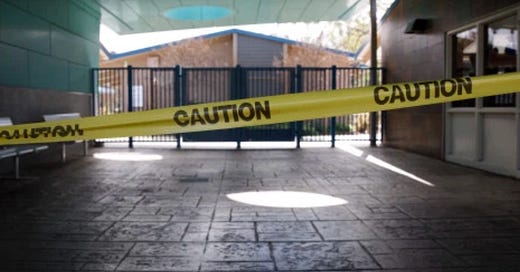Should the COVID-19 Crisis Affect Your Recruiting Timelines for Prospects?
Just one of the many questions coaches are facing now...here's our take on it:

There are two main themes emerging from our conversations with our clients and Honey Badger Recruiting as the Coronavirus crisis evolves:
What should we be doing differently in our communication as we contact recruits during this crisis?
If we have already established timelines and deadlines with our recruits, should we change those because of the crisis?
Let’s focus on the timeline question first, and in the next post, we’ll talk about how communication should be different.
The question surrounding the timeline and deadline you may have a prospect on makes sense. We’ve all experienced disruptions in our lives, including your recruits and their families. But the truth is, you still have the responsibility to recruit the best class possible…after this is all done, it’s going to very quickly get back to business as usual, with the same expectations on you as before all of this started.
So that being said, here are some approaches we’re recommending for coaches - and as we go through these, let me say right from the start that it’s critical you pick the strategy that fits your situation, personality, and comfort level.
The case for keeping your existing timelines and deadlines you have in place for recruits
You still have to field a team, and that team requires new recruits to replace the seniors you’ve lost as you head into your 2020-2021 season. That’s the reality.
So in a sense, nothing has changed when it comes to the fact that when you’ve attained the commitments you need, recruiting is done. That’s a message you need to continue to voice to your recruits.
The main stumbling block coaches seem to be running into early on in this approach is that the prospects spring high school and club seasons have been delayed or canceled, meaning they can’t continue to get seen by other coaches and explore all of their other options.
If you choose to keep your existing timeline and deadline, what you need to tell your recruits is that you know you’ll be done recruiting at the same time as you were forecasting before the crisis started. In a sense, the crisis has given you cover for maintaining your timeline: It’s not your fault their other opportunities evaporated, and you are in the process of getting commitments to complete your recruiting class. If they want to be a part of it, they need to come to a decision.
The case for extending your timeline and deadlines you have in place for recruits
There are two big reasons, in my view, where this becomes a serious consideration for coaches: When the prospect hasn’t had the chance to visit campus yet, and when you haven’t had enough time to evaluate them.
You shouldn’t take a commitment from an athlete you don’t feel comfortable about as a coach, period. If that’s the case, explain that your planned scouting periods have been disrupted and you need to set some new timelines for their recruitment based on that. Explaining the reason you are delaying your decision is really important.
And, likewise, if a prospect hasn’t had the chance to visit your campus and be around your team, it’s unlikely they’ll be able to make a decision. And, that’s fair…we wouldn’t rent an apartment, buy a car, or change jobs without experiencing first hand or experiencing it first. So, altering your approach for recruits who haven’t had the chance to do any of that is reasonable.
Personally, I don’t think that applies to athletes that have already visited but just wanted to visit again. If you need their decision, they’ve experienced what they need to in order to know if you’re the right program or not. The temporary crisis we’re experiencing hasn’t changed your prospects’ penchant for delaying a decision and wanting to wait for that “better” offer, and I’m hoping coaches won’t give into the temptation to allow prospects more time when they probably already know whether or not you’re the right fit for them.
One thing you’re going to have to do regardless of your approach is communicate with your recruits. And, you’re going to have to do that without seeing them in person.
If you missed our previous podcast post on communicating using video platforms, listen to it now. There are some important tips that are already helping coaches communicate better with their prospects, and we want you to be doing it the right way, too.


